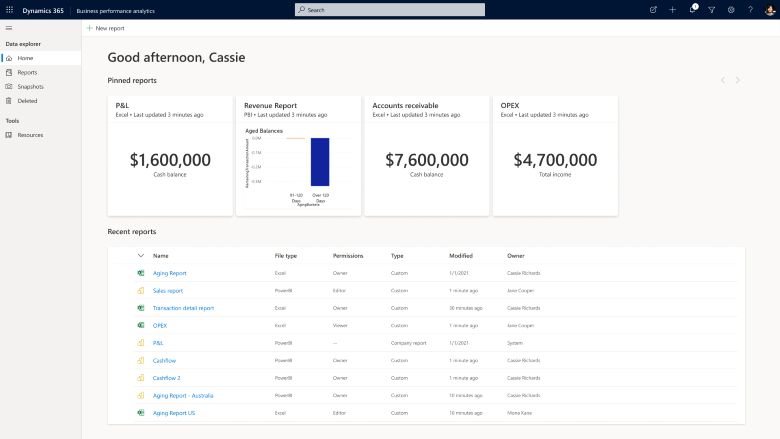Analyze business data in Excel
Important
This content is archived and is not being updated. For the latest documentation, go to What's new or changed in Dynamics 365 Finance. For the latest release plans, go to Dynamics 365, Power Platform, and Cloud for Industry release plans.
Important
Some of the functionality described in this release plan has not been released. Delivery timelines may change and projected functionality may not be released (see Microsoft policy). Learn more: What's new and planned
| Enabled for | Public preview | General availability |
|---|---|---|
| Users by admins, makers, or analysts |  Jul 1, 2024
Jul 1, 2024 |
Oct 2024 |
Business value
The Analyze in Excel feature in Business performance analytics enhances data analysis capabilities by integrating Business performance analytics data directly with Excel. This allows you to use Excel's powerful tools for creating custom analyses, pivot tables, and charts, leveraging familiar functions to explore data in-depth. The feature supports real-time decision-making with automatically refreshed data, ensuring that analyses are always current.
Feature details
The Analyze in Excel feature in Business performance analytics (BPA) delivers substantial business value by allowing you to harness the full potential of Excel for data analysis directly within the BPA platform. This integration enables seamless access to BPA data in Excel, where you can leverage familiar tools and functions to create custom analyses, pivot tables, and charts. By providing direct interaction with Business performance analytics data in Excel, you can perform detailed and complex data analysis efficiently. The ability to refresh data automatically ensures that analyses are always up to date, facilitating real-time decision-making.
Analyze in Excel enhances user productivity by combining the robust data capabilities of Business performance analytics with the versatile analytical tools of Excel. This integration simplifies the data analysis process, reduces the learning curve for users already familiar with Excel, and fosters a data-driven culture within the organization. Ultimately, it empowers users to make informed decisions, driving operational excellence and business growth. With the complete BPA data model available in Excel, users can unlock deeper insights and tailored reports, ensuring comprehensive and accurate business performance analysis.
